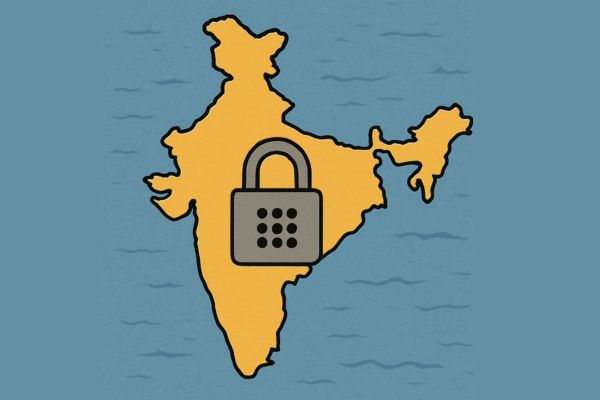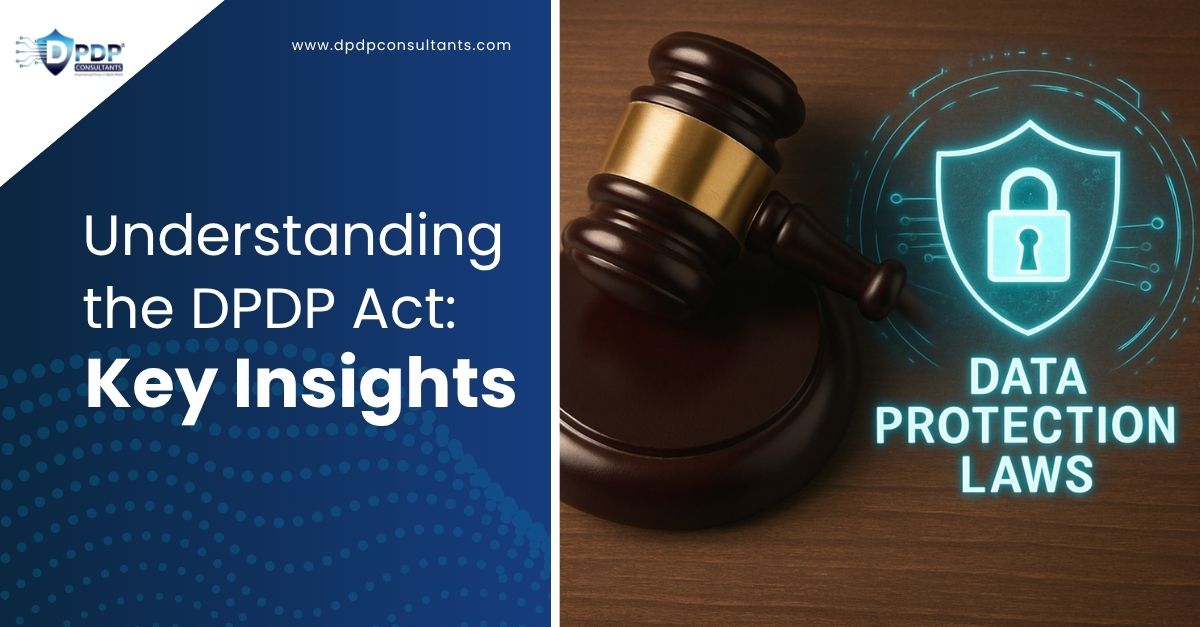In this article, we'll break down the DPDP Act, its significance, and what it means for individuals and businesses in India.
The Digital Personal Data Protection (DPDP) Act is India's comprehensive legislation aimed at protecting personal data. This law is designed to regulate how personal data is processed while respecting individuals' rights to privacy. It establishes guidelines for data collection, storage, and processing, ensuring that organizations handling personal data do so responsibly.
The Evolution of Data Protection Laws in India
Before the DPDP Act, India's data protection framework was primarily governed by the Information Technology Act, 2000, and its associated rules. These early regulations laid the groundwork for data protection but were limited in scope. As technology evolved, so did the need for updated laws that could address the complexities of modern data processing.
The introduction of the DPDP Act marks a significant shift towards robust data protection in India, aligning the country's policies with global standards. By adopting a comprehensive approach, the Act addresses the shortcomings of previous legislation and provides a clear framework for data protection. It also reflects India's commitment to participating in the global dialogue on privacy and data protection.
Objectives of the DPDP Act
The primary objective of the DPDP Act is to safeguard individuals' personal data while balancing the needs of businesses and the economy. The Act seeks to empower individuals with more control over their personal information, ensuring that their rights are prioritized. By doing so, it aims to foster trust between consumers and businesses, which is essential for a thriving digital economy.
Moreover, the DPDP Act aims to enhance data security and prevent misuse or unauthorized access to personal information. Through stringent guidelines and regulatory oversight, the Act endeavors to create a secure digital environment that protects citizens' privacy. Additionally, it encourages businesses to adopt best practices in data management, promoting innovation while ensuring compliance.
Comparison with Global Data Protection Laws
The DPDP Act draws inspiration from global data protection frameworks, such as the European Union's General Data Protection Regulation (GDPR). While both laws share common objectives, there are notable differences in their implementation and scope. The DPDP Act is tailored to India's unique socio-economic landscape, considering the diverse challenges faced by the country.
For instance, the DPDP Act places a strong emphasis on data localization, a provision not as prominently featured in the GDPR. This requirement reflects India's focus on data sovereignty and security. By learning from international experiences, the DPDP Act aims to strike a balance between global best practices and local needs, establishing India as a leader in data protection.
Key Features of the DPDP Act
Consent-Based Data Collection
The cornerstone of the DPDP Act is the requirement for explicit consent from individuals before their data is collected and processed. This means that businesses must obtain clear permission from individuals, outlining how their data will be used.
Obtaining consent is not merely a formality; it involves a transparent and informed process where individuals are provided with all necessary information. Organizations must ensure that consent is specific, informed, and freely given, allowing individuals to make educated decisions about their data. This empowers consumers and reinforces their autonomy over personal information.
In practice, businesses need to implement clear consent mechanisms, such as opt-in boxes or consent forms, that are easy to understand. These mechanisms should clearly state the purpose of data collection and provide options for individuals to withdraw consent if they choose to do so. By adhering to these standards, organizations can build trust and demonstrate a commitment to ethical data practices.
Rights of Data Subjects
The DPDP Act grants several rights to data subjects, including:
• Right to Access: Individuals can request access to their personal data held by an organization.
• Right to Correction: If data is inaccurate, individuals have the right to request corrections.
• Right to Erasure: Individuals can request the deletion of their data under certain conditions.
These rights are integral to empowering individuals and ensuring their control over personal information. The Right to Access allows individuals to verify how their data is used, fostering transparency. With the Right to Correction, individuals can maintain the accuracy of their data, which is crucial for preventing misuse or incorrect profiling.
The Right to Erasure, often referred to as the "right to be forgotten," enables individuals to remove personal data that is no longer necessary or has been unlawfully processed. This right underscores the importance of respecting individuals' preferences and ensuring their privacy is upheld. By implementing these rights, the DPDP Act strengthens individuals' confidence in digital interactions.
Data Localization

The Act emphasizes data localization, requiring that certain categories of personal data be stored within India's borders. This move aims to enhance data security and sovereignty.
Data localization ensures that personal data is subject to Indian laws and regulatory oversight, reducing the risk of foreign interference. By retaining data within national borders, the Act aims to protect sensitive information from potential breaches or unauthorized access. This provision is particularly significant in the context of cross-border data flows and international data transfers.
Businesses operating in India must adapt their data management practices to comply with localization requirements. This may involve establishing local data centers or partnering with service providers that adhere to Indian regulations. While data localization presents challenges, it also offers opportunities for businesses to strengthen data security and gain consumer trust.
Data Protection Officer (DPO)
Organizations processing personal data must appoint a Data Protection Officer (DPO) to ensure compliance with the Act. The DPO acts as a liaison between the organization and regulatory authorities, overseeing data protection activities.
The role of the DPO is multifaceted, encompassing responsibilities such as monitoring data processing activities, conducting audits, and providing guidance on compliance matters. As a key point of contact, the DPO ensures that organizations adhere to data protection standards and address any potential breaches promptly.
For businesses, appointing a qualified DPO is crucial for maintaining compliance and avoiding penalties. The DPO's expertise in data protection helps organizations navigate the complexities of the DPDP Act and implement effective data management strategies. By fostering a culture of accountability, the DPO plays a vital role in upholding individuals' privacy rights.
Implications for Businesses
Compliance Obligations
Businesses operating in India must align their data processing practices with the DPDP Act. This involves revising data collection methods, updating privacy policies, and implementing robust security measures to safeguard personal data.
Compliance with the DPDP Act requires businesses to conduct thorough assessments of their data handling practices. This includes identifying potential risks, implementing mitigation strategies, and ensuring transparency in data processing activities. By integrating data protection principles into their operations, businesses can demonstrate a commitment to ethical data management.
Moreover, businesses must prioritize employee training and awareness to ensure compliance across all levels of the organization. Regular training sessions can help employees understand their roles in data protection and foster a culture of accountability. By promoting best practices, businesses can mitigate compliance risks and enhance their reputation.
Impact on SMEs
For small and medium enterprises (SMEs), complying with the DPDP Act may require additional resources and expertise. However, it also presents an opportunity to build trust with customers by demonstrating a commitment to data privacy.
SMEs may face challenges in implementing the necessary changes due to limited resources or technical expertise. However, by prioritizing data protection, they can differentiate themselves in a competitive market. By adopting privacy-enhancing technologies and transparent data practices, SMEs can gain a competitive edge and enhance customer loyalty.
Collaboration with industry associations and regulatory bodies can also support SMEs in achieving compliance. These organizations often provide resources, training, and guidance to help businesses navigate the complexities of the DPDP Act. By leveraging these opportunities, SMEs can enhance their data protection capabilities and drive growth.
Penalties for Non-Compliance

Non-compliance with the DPDP Act can result in hefty fines and reputational damage. Organizations must take proactive steps to ensure adherence to the law to avoid such consequences.
Penalties for non-compliance are designed to deter negligent or unlawful data practices and emphasize the importance of data protection. Businesses that fail to meet the requirements of the DPDP Act may face financial penalties, which can have a significant impact on their operations. Additionally, reputational damage from data breaches or non-compliance can erode consumer trust and affect business relationships.
To avoid these consequences, businesses should conduct regular audits and assessments to ensure compliance with the DPDP Act. Implementing robust data protection measures, such as encryption and access controls, can help mitigate risks and demonstrate a commitment to privacy. By prioritizing compliance, businesses can protect themselves from potential penalties and foster a positive reputation.
The Role of Technology in Data Protection
Embracing Privacy-Enhancing Technologies
To comply with the DPDP Act, businesses can leverage privacy-enhancing technologies such as encryption, anonymization, and pseudonymization. These tools help protect personal data while enabling data-driven insights.
Encryption ensures that data is unreadable to unauthorized parties, adding a layer of security to sensitive information. Anonymization removes identifiable information, allowing businesses to analyze data without compromising privacy. Pseudonymization replaces personal identifiers with pseudonyms, reducing the risk of re-identification while maintaining data utility.
By adopting these technologies, businesses can enhance their data protection capabilities and comply with the DPDP Act's requirements. These tools not only safeguard personal data but also enable businesses to harness the power of data analytics and insights. By balancing privacy and innovation, businesses can drive growth while respecting individuals' rights.
The Rise of Data Protection Tools
The demand for data protection tools and software is expected to grow as businesses seek solutions to meet the requirements of the DPDP Act. These tools assist in managing consent, monitoring data access, and ensuring compliance.
Data protection tools offer businesses a comprehensive approach to managing personal information and maintaining compliance. Consent management platforms help organizations obtain and track consent from individuals, ensuring transparency and accountability. Data access monitoring tools provide insights into who is accessing data and for what purposes, enabling businesses to detect and respond to unauthorized activities.
As the digital landscape evolves, businesses must stay informed about emerging technologies and trends in data protection. By investing in data protection tools, organizations can streamline their compliance efforts and build consumer trust. These tools not only enhance data security but also position businesses as leaders in privacy protection.
Challenges and Opportunities
While the DPDP Act strengthens privacy protections, businesses face the challenge of balancing these requirements with the need for innovation. Companies must find ways to innovate while respecting individuals' privacy rights.
Innovation often involves analyzing large datasets to derive insights and drive growth. However, businesses must ensure that data processing activities comply with privacy regulations and respect individuals' rights. By adopting privacy-by-design principles, organizations can embed privacy into their products and services from the outset.
Additionally, businesses can view compliance with the DPDP Act as an opportunity to differentiate themselves in the market. By demonstrating a commitment to privacy and data protection, companies can build consumer trust and enhance brand reputation. Transparent data practices can become a competitive advantage in the digital marketplace, fostering stronger customer relationships and loyalty.
Future Developments
Looking Ahead: DPDP Rules 2025
The DPDP Act is expected to evolve, with updates and amendments to address emerging privacy challenges. The DPDP Rules 2025 will likely introduce new provisions and clarify existing ones, ensuring the law remains relevant in a rapidly changing digital landscape.
As technology continues to advance, new privacy concerns and challenges may arise, necessitating updates to the DPDP Act. The DPDP Rules 2025 will likely address these challenges by refining existing provisions and introducing new ones. By staying informed about these developments, businesses can proactively adapt their practices and ensure compliance.
Collaboration between regulators, industry stakeholders, and civil society will play a crucial role in shaping the future of data protection in India. By engaging in discussions and providing feedback, businesses can contribute to the development of effective and balanced regulations. This collaborative approach ensures that the DPDP Act remains responsive to the needs of all stakeholders.
Global Influence
As India strengthens its data protection framework, it may influence other countries, particularly those in the region, to adopt similar measures. The DPDP Act positions India as a leader in data privacy, setting a precedent for others to follow.
India's approach to data protection reflects its commitment to global standards and best practices. By adopting comprehensive data protection laws, India sets an example for other countries seeking to enhance their privacy frameworks. This influence extends beyond national borders, encouraging regional cooperation and harmonization of data protection standards.
As other countries observe India's progress, they may be inspired to implement similar measures to protect their citizens' privacy. By leading the way in data protection, India not only safeguards its own citizens but also contributes to the global dialogue on privacy and security. This leadership role reinforces India's position as a key player in the digital economy and privacy landscape.
Conclusion
The Digital Personal Data Protection (DPDP) Act is a landmark step in India's journey toward comprehensive data privacy. It underscores the importance of safeguarding personal data in an increasingly digital world. For businesses, compliance is not just a legal obligation but an opportunity to foster trust and innovation.
As the digital landscape continues to evolve, staying informed about data protection laws and embracing best practices will be crucial for individuals and organizations alike. By doing so, India can navigate the complexities of the digital age while upholding the values of privacy and security.
Understanding and implementing the DPDP Act is essential for ensuring a secure and privacy-conscious future for India's digital citizens. The Act not only protects individuals' rights but also empowers businesses to innovate responsibly. By prioritizing data protection, India can build a resilient digital economy that benefits all stakeholders.








